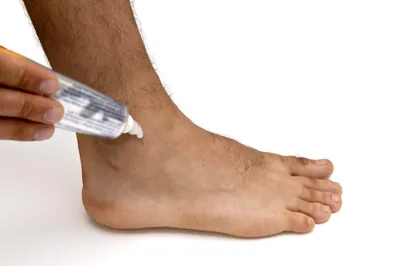Whether it’s a chronic stiff neck, a horrible migraine, or a pinched nerve in your shoulder nerve pain is relentless when it strikes—and it always comes on at the worst possible moment.
Getting control of your nerve pain can seem hopeless without effective pain relief. Luckily, the medical professionals offer nine popular options—of the prescription and non-prescription variety—when it comes to treating nerve pain. In fact, many of the following nerve pain relief treatments are used in combination for greater success.
Arnica
Natural arnica gel is a non-prescription pain remedy that’s topically applied to the affected area. While arnica gel is more often used to treat arthritis pain, this flower-derived remedy can also be rubbed into necks, shoulders, knees, and backs with nerve troubles. And better yet, it’s relatively inexpensive at any health food store.
Anticonvulsants
Traditionally prescribed to epileptics to control seizures, anticonvulsant drugs can be effective on nerve pain as they work to calm and balance the nervous system’s response. But keep in mind that taking these powerful prescription drugs can cause stomach upset, drowsiness, double vision, and even dizziness.
NSAIDS
Another powerful prescription option to treat nerve pain are NSAIDs (or nonsteroidal anti-inflammatory drugs). These are often prescribed to treat headache and migraine nerve pain, and nerve pain associated with sprains and arthritis symptoms. However, NSAIDs also reduce swelling in addition to providing pain relief.
Antidepressants
More recently doctors are prescribing tricyclic antidepressants for nerve pain because they work as a pain reliever in addition to soothing the depression that often develops with chronic pain. For patients who can’t take tricyclic antidepressants (i.e., those with existing heart conditions), SNRIs (serotonin and norepinephrine reuptake inhibitors) are often prescribed instead.
Capsaicin Creams
Capsaicin, the active ingredient in chili peppers, works as an effective pain reliever by blocking the pain impulses in the actual nerve. Capsaicin cream can be applied topically to the affected area—the neck, back, shoulder, or knee— multiple times per day for a warming sensation that soothes chronic pain in mere minutes.
Pain Relief Patches
Localized nerve pain (in small, contained areas of the body like the ankle) can benefit from lidocaine patches, applied right to the spot of painful origin. These non-prescription patches can be purchased at any drug store. The only thing you need to watch out for is developing skin rashes and other exterior irritations.
Vitamin B12
Vitamin B12 is an effective supplemental treatment for nerve pain because the vitamin itself actually encourages nerve support within the body by strengthening and thickening the protective coating that protect the nerves. This protection ensures that nerves don’t become exposed and cause sharp, chronic pain.
Positional Release Therapy
Positional release therapy (or PRT) is an alternative therapy that eases nerve-associated spasms and pain in the neck, elbow, legs, and shoulders. PRT focuses treatment on the tender point of pain, placing pressure on the area for 90-second intervals while using breathing techniques to calm the body and mind. PTR is meant to break the cycle of pain by loosening up the body and helping the patient relax.











